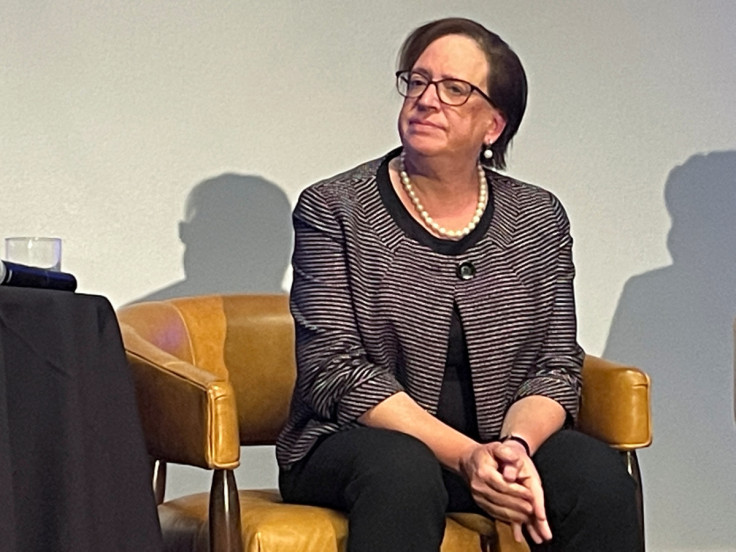U.S. Supreme Court Risks Its Legitimacy By Looking Political, Justice Kagan Says

The U.S. Supreme Court's legitimacy could be imperiled if Americans come to view its members as trying to impose personal preferences on society, liberal Justice Elena Kagan said on Wednesday in the wake of rulings powered by her conservative colleagues curtailing abortion access and widening gun rights.
At an event at Northwestern University in Chicago, Kagan differed from conservative Chief Justice John Roberts, who during a public appearance on Friday in Colorado Springs, Colorado, said the court's legitimacy should not be questioned "simply because people disagree with an opinion."
Kagan said that on the question of legitimacy, the popularity of the court's rulings is not the issue. Instead, she added, a "court is legitimate when it's acting like a court," by respecting past precedents and not asserting authority to make political or policy decisions.
"When courts become extensions of the political process, when people see them as extensions of the political process, once people see them as trying just to impose personal preferences on a society, irrespective of the law, that's when there's a problem," Kagan said.
Kagan did not mention any specific rulings in her comments about the court's legitimacy.
The court's 6-3 conservative majority during its most recent term, which ended in June, illustrated how it was willing to assert its power with blockbuster rulings on abortion, guns and other matters.
Kagan, who has served on the court since 2010, dissented in its June decisions that overturned the 1973 Roe v. Wade landmark that had legalized abortion nationwide and recognized for the first time that the U.S. Constitution protects an individual's right to carry a handgun in public for self-defense.
Kagan said it is important that courts respect precedents to provide stability over time and overturn past rulings only in "highly unusual cases."
"If there's new members of the court, and all of a sudden everything is up for grabs, all of a sudden very fundamental principles of law are being overthrown or are being, you know, replaced, then people have a right to say, 'What's going on there? That doesn't seem very law-like,'" Kagan said.
The Supreme Court includes three conservative justices appointed by former President Donald Trump: Neil Gorsuch in 2017, Brett Kavanaugh in 2018 and Amy Coney Barrett in 2020.
Kagan also criticized a way of interpreting the Constitution favored by some conservatives known as originalism, which focuses upon how the text was understood when it was written. The Constitution was ratified in the 18th century, with amendments in the 19th and 20th centuries.
"I'm not sure what it means, given that it seems to be sort of fluctuating over time and over cases in ways that again makes you concerned that the rules change as the desired outcomes change," Kagan said of originalism.
Kagan said that originalism "does not work so well" in part because it is difficult for judges to find definitive legal answers from historical evidence that may support either side. Kagan cited as examples the disputes that led to the court's rulings in 2008 and last June expanding the right for people to possess handguns both at home and in public.
In addition, Kagan said originalism is "inconsistent" with the way the Constitution was written.
Its framers wrote broad, even vague, statements of protection such as "due process of law" or "equal protection of the laws" in order to account for a changing world, Kagan said.
"They knew the country would change," Kagan said. "They knew a Constitution was meant to survive for the ages."
The court's next term begins in October and includes more major cases including conservative challenges to affirmative action policies used by colleges and universities to increase the number of Black and Hispanic students on their campuses. President Joe Biden's recent appointee Ketanji Brown Jackson has joined Kagan and Sonia Sotomayor in the court's liberal bloc.
© Copyright Thomson Reuters {{Year}}. All rights reserved.





















